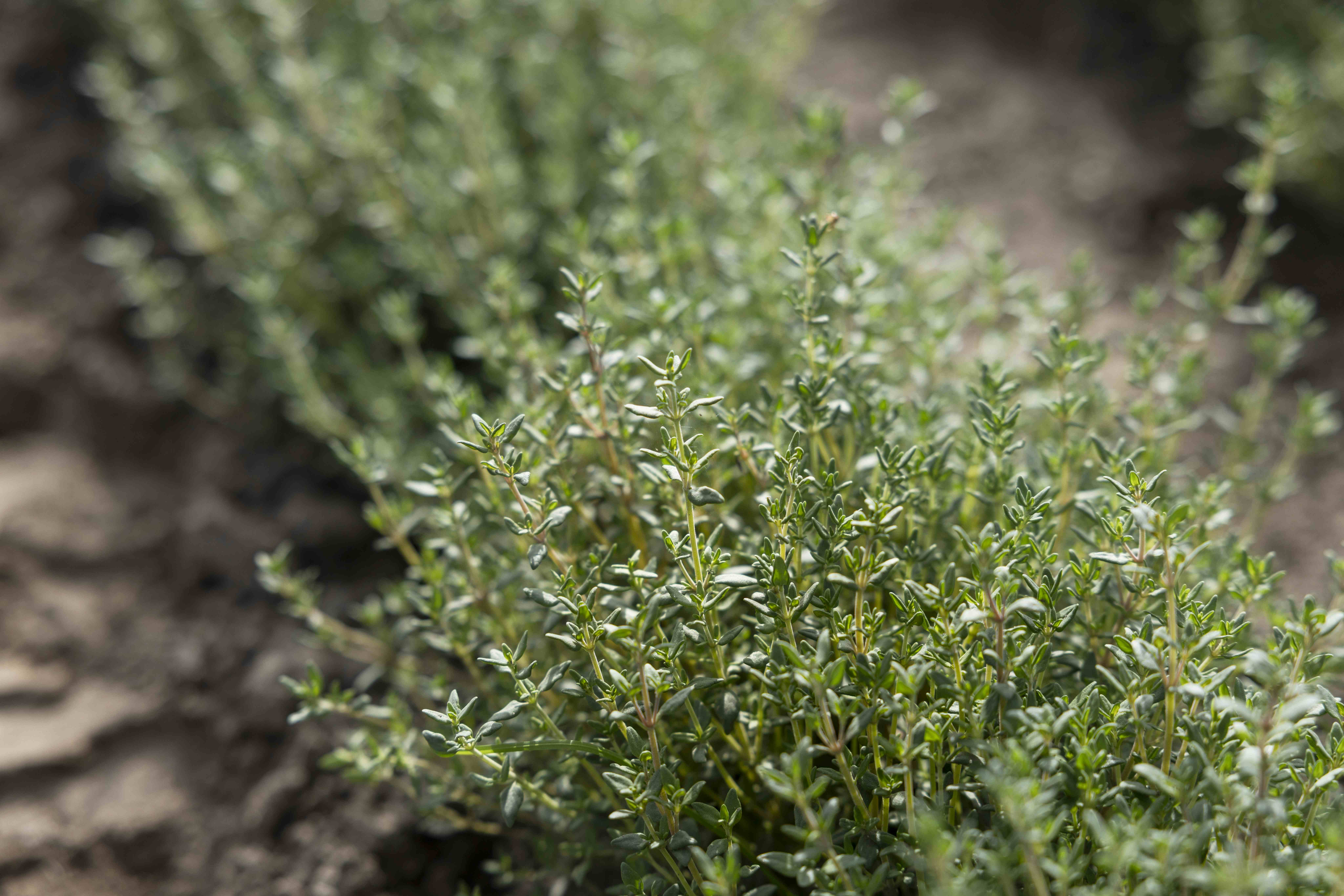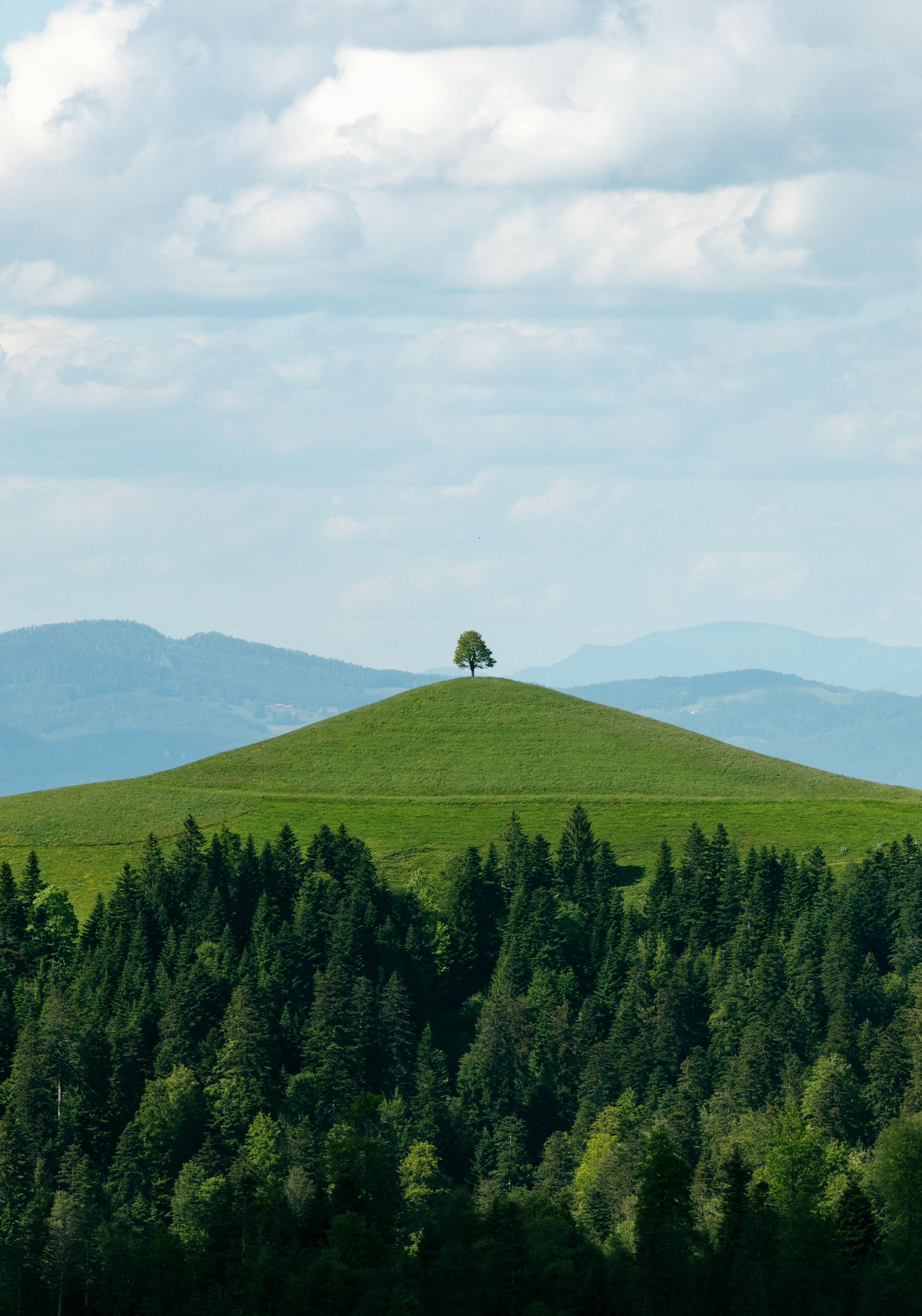Thyme

“For some, this seems like a contradiction: I don’t need much - but I can give a lot. That's my nature. All I do is use the sunlight as efficiently as possible. It helps me to produce the oils that have become essential, not only for me.”
Talented thyme
Thyme (Thymus vulgaris) can do a lot with very little. To produce its rich compounds, it does not need rich soil. With its sweet and tangy scent, thyme enchanted the ancient Greeks and the heroic Romans. It is said that its name ‘Thymus’ comes from the classical Greek word ‘thumus', which means ‘courage’. The ancient Romans took this literally and bathed in thyme water. This was thought to give fighters extra strength.
Another explanation is that the Greeks used thyme to purify the air, hence its name, which comes from ‘thyein’, meaning ‘fumigation’. Today, thyme oil is used as an aromatic stimulant and tonic that purifies the air, eases breathing and strengthens the body and mind. Thyme oil is rich in compounds such as thymol, carvacrol, and linalool, which contribute to its therapeutic properties. And of course, thyme is also a great seasoning herb. It is a staple in Mediterranean cuisine and is often used to season soups, sauces, broths, meats, and vegetables.
Facts and Figures
- - 1 °C
- Native to the Mediterranean, thyme is now also thriving in cold climates.
- Thyme helps neutralize bacterial, fungal and viral infections.
- 3
- A thyme plant can be harvested for up to 3 consecutive years.
FAQ
The content on this webpage is provided for informational purposes only, it does not substitute professional medical advice or seeing a doctor, and it should not be used for any promotional purpose of our products.

